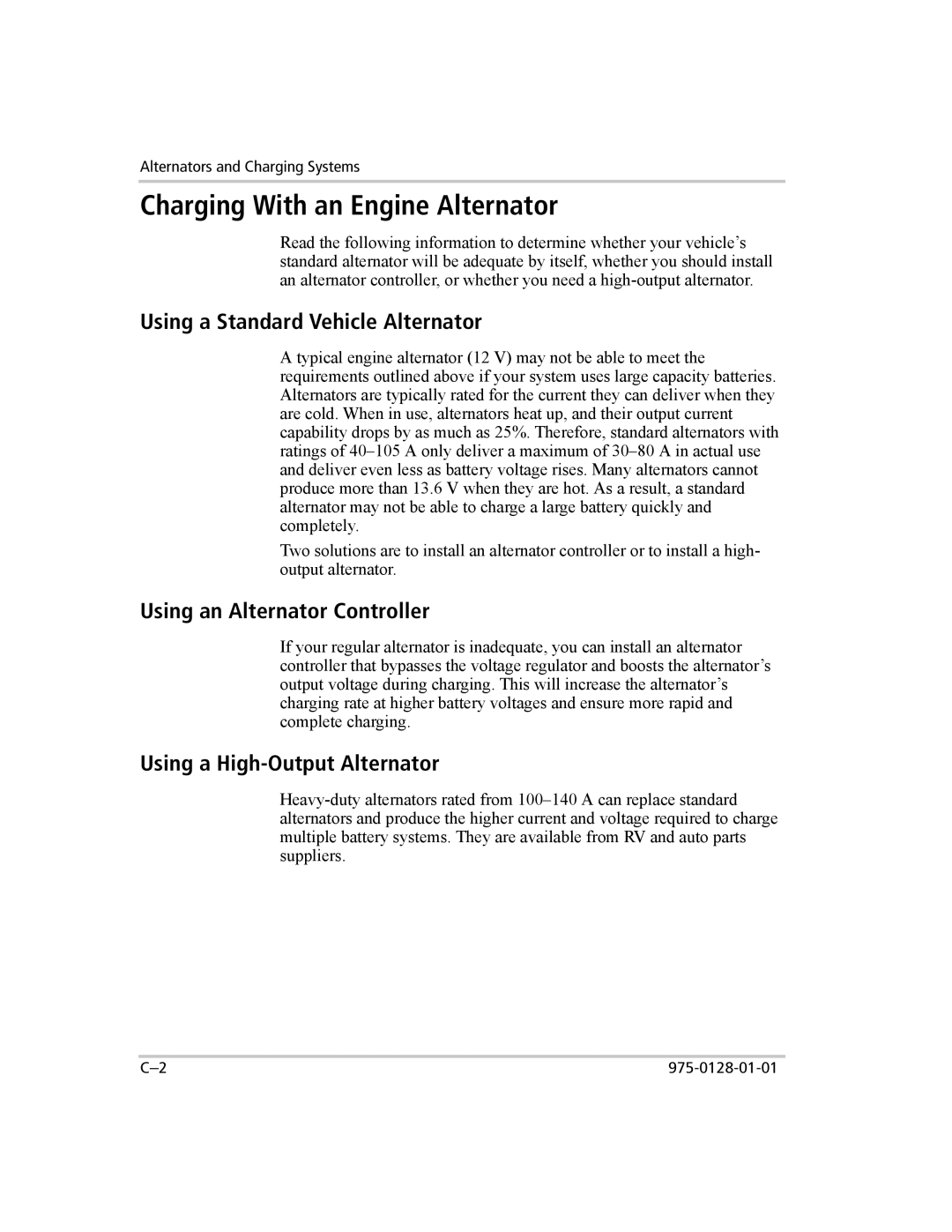
Alternators and Charging Systems
Charging With an Engine Alternator
Read the following information to determine whether your vehicle’s standard alternator will be adequate by itself, whether you should install an alternator controller, or whether you need a
Using a Standard Vehicle Alternator
A typical engine alternator (12 V) may not be able to meet the requirements outlined above if your system uses large capacity batteries. Alternators are typically rated for the current they can deliver when they are cold. When in use, alternators heat up, and their output current capability drops by as much as 25%. Therefore, standard alternators with ratings of
Two solutions are to install an alternator controller or to install a high- output alternator.
Using an Alternator Controller
If your regular alternator is inadequate, you can install an alternator controller that bypasses the voltage regulator and boosts the alternator’s output voltage during charging. This will increase the alternator’s charging rate at higher battery voltages and ensure more rapid and complete charging.
